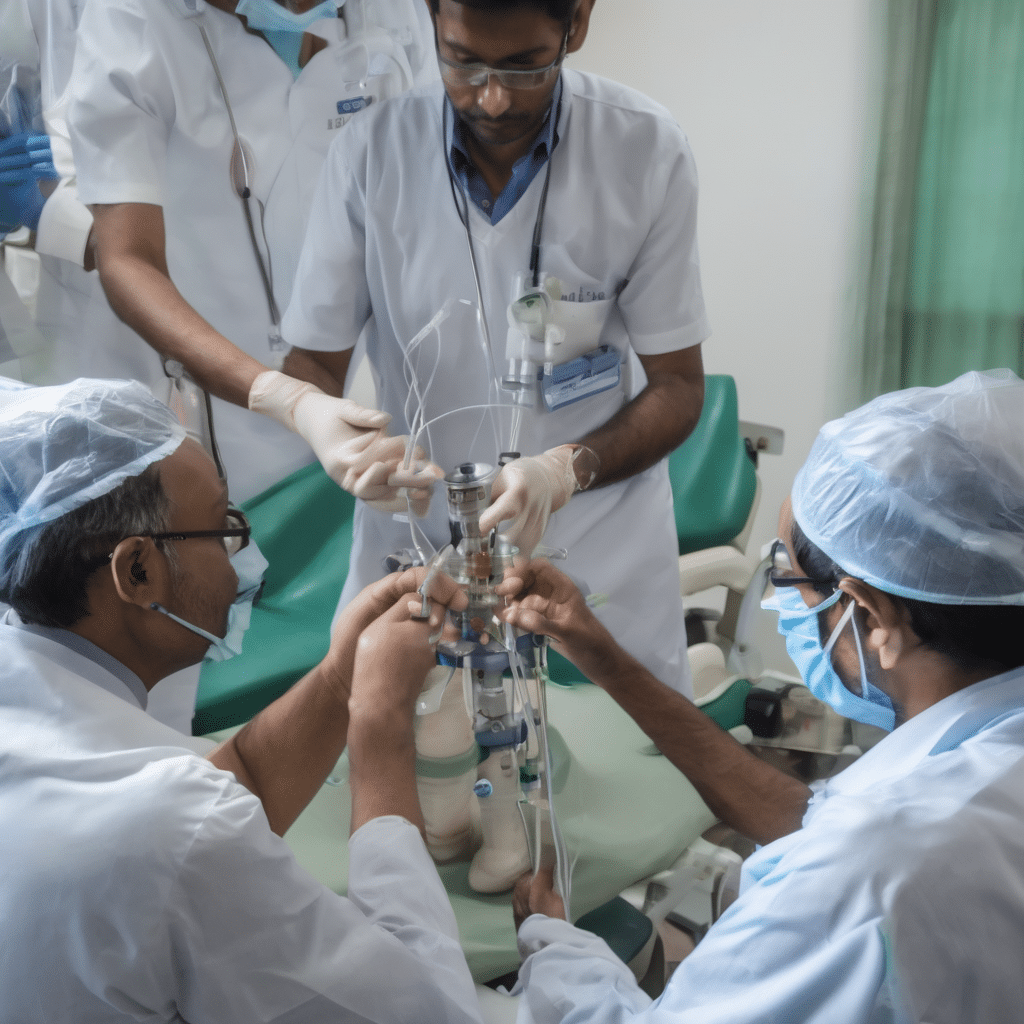Living with a defective heart valve can feel like an uphill battle. But in Bangladesh, a ray of hope shines through percutaneous valve procedures, offering minimally invasive alternatives to traditional open-heart surgery. These innovative techniques allow qualified individuals to regain normal heart function and improve their quality of life with less trauma and faster recovery.
Understanding Heart Valve Disease:
Your heart relies on four valves to ensure blood flow in the right direction. When these valves become damaged or diseased, they can leak or narrow, hindering blood flow and impacting your heart’s efficiency. Common heart valve problems in Bangladesh include:
- Mitral valve stenosis: Narrowing of the mitral valve between the left atrium and ventricle.
- Aortic valve stenosis: Narrowing of the aortic valve leading out of the left ventricle.
- Mitral valve regurgitation: Leaky mitral valve allowing blood to flow backward.
- Tricuspid valve regurgitation: Leaky tricuspid valve between the right atrium and ventricle.
The Percutaneous Advantage:
Traditional open-heart surgery for valve replacement, while effective, often involves long incisions, lengthy recovery times, and potential complications. Percutaneous valve procedures, on the other hand, offer a less invasive approach:
- Transcatheter Aortic Valve Replacement (TAVR): Replaces the aortic valve through a catheter inserted through the groin or arm, avoiding open-heart surgery. Ideal for high-risk patients or those with aortic valve stenosis.
- Transcatheter Mitral Valve Implantation (TMVI): Implants a new valve inside the existing, leaky mitral valve through a catheter, often reducing regurgitation and symptoms.
- Pulmonary Valve Replacement: Replaces the pulmonary valve in the right heart using a catheter, usually recommended for patients who underwent previous open-heart surgery and require valve replacement.
Benefits of Percutaneous Valve Procedures:
- Minimally invasive: Smaller incisions, less tissue damage, and reduced risk of complications compared to open-heart surgery.
- Faster recovery: Shorter hospital stays and quicker return to normalcy, often within days or weeks.
- Reduced pain and discomfort: Minimized post-operative pain and faster return to regular activities.
- Improved quality of life: Alleviate symptoms and improve energy levels, allowing patients to resume activities they previously enjoyed.
Accessibility in Bangladesh:
While still evolving, percutaneous valve procedures are increasingly available in Bangladesh. Reputable hospitals like National Heart Foundation, Square Hospitals, and Chittagong Medical College Hospital are pioneers in offering these technologies, led by experienced cardiologists trained in these techniques.
Finding the Right Specialist:
Consult a cardiologist specializing in interventional cardiology and percutaneous valve procedures to discuss your individual case and suitability for these minimally invasive options. Consider factors like your valve disease type, overall health, and surgical risk to determine the best approach.
Taking Control of Your Heart Health:
Percutaneous valve procedures offer a promising alternative for eligible patients with heart valve disease in Bangladesh. By understanding these options, their benefits, and accessibility, you can make informed decisions about your care and reclaim your quality of life. Remember, early diagnosis and timely intervention are key to managing heart valve disease and living a healthy life.


